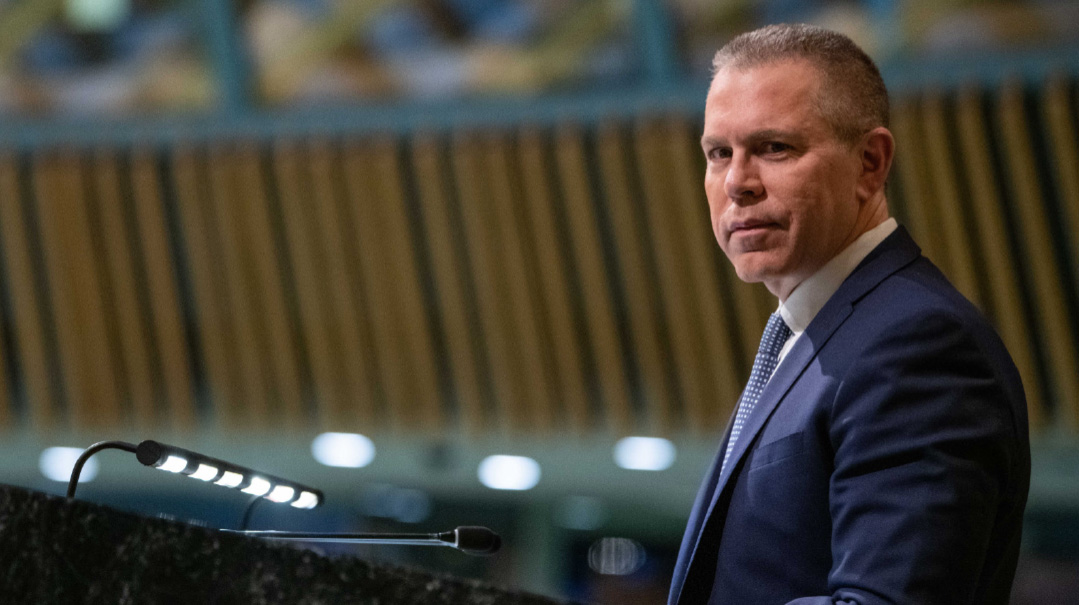Hijacking a Worthy Cause

Those hopping on the bandwagon to try to pour fuel on the fire raging in Israeli society can and should be called out

Photo: Flash90
1
The Knesset visitors’ gallery, the largest and uppermost of the plenum’s galleries, is positioned facing the podium, to command the entire chamber. Since the terrible day of Simchas Torah, the term “gallery” has assumed a tragic double meaning, with photos of the hostages held in Gaza being displayed on the empty seats.
Foreign dignitaries on solidarity visits to the chamber have been brought to the podium to illustrate how every Knesset member sitting in the plenum has the hostages before his eyes at every moment, silent spectators from above.
Given the fact that Knesset members have continued bickering after the Simchas Torah massacre as they did before, it would be hard to say that the silent spectators in the upper gallery have had much of an influence on the hall below them over the past 80 days.
But last week, something did change. The silence in the hostages’ gallery was broken when Prime Minister Netanyahu took to the podium only to be interrupted again and again by rhythmic chants of “now, now,” by families of the hostages packing the gallery.
Family members who’ve been at their wits’ end for the past 80 days over the fate of their loved ones held in Gaza are immune from criticism. It’s not only the right but the obligation of parents to seek the welfare of those dearest to them, however they see fit.
But those hopping on the bandwagon to try to pour fuel on the fire raging in Israeli society can and should be called out, loudly and clearly. And the political campaign being waged in a country under fire has to be addressed.
2
The attitude in the Prime Minister’s Office toward the representatives of the families of the hostages wasn’t hostile from the outset. I visited the headquarters of the Abducted and Missing Families Forum several times in the first few days after October 7, and it was impossible not to marvel at the cooperation between truly decent citizens who felt the imperative to take action. Economists and accountants addressed families’ needs, medical personnel drew up personal medical files for each of the hostages and tried to pass the data on to Qatar and the Red Cross.
Most of the family members who gathered at the headquarters, ashen-faced yet imbued with determination, were residents of the kibbutzim near the Gaza Strip, but alongside them were anxious parents and uncles of abducted soldiers and Nova festival goers, from all walks of life. Volunteers from all communities and sectors came and went. The human mosaic at the headquarters reflected Israel at its best.
One fine day about two weeks after Simchas Torah, the forum abandoned its offices at Beit Amot Mishpat, generously donated by Tel Aviv lawyer Dudi Zalmanovich, a Netanyahu associate, in favor of the left-wing Beit Hakibbutz Ha’artzi. This came following Netanyahu’s painful though respectful meeting with the families of the abductees, initiated by Zalmanovich, as someone whose nephew had been abducted to Gaza.
Netanyahu’s office sees that as the moment when elements hostile to the government hijacked the forum. “That’s when we realized that the group had been infiltrated by radical political elements, and we started questioning their motives,” a source in Netanyahu’s office told me this week. “By now it’s clear to the entire political system that certain elements took advantage of the families’ plight to orchestrate a political campaign against Netanyahu.”
3
The motives of the families themselves are holy of holies, but those of some in their circle are decidedly earthly. The latter have linked two goals: bringing back the hostages and removing Netanyahu — and not necessarily in that order.
“I’m not talking about the parents’ completely understandable plea to rescue their children at any price,” a source in Netanyahu’s office told me. “I’m talking about the political campaign accusing the government, and especially the prime minister, of somehow deliberately holding up the hostages’ release. Ironically, the opposite is the case. Because this campaign allows Sinwar to up the price as he waits patiently for the Israeli government to capitulate to public pressure.”
The political campaign in the midst of the fighting has been going on almost from day one, but contrary to the media’s portrayal, Netanyahu is not the one who started it. He was beaten to it by certain activists in the Abducted and Missing Families Forum who had marked him out even before October 7. He was beaten to it by Benny Gantz, who took advantage of a joint press conference with the prime minister to lash out at funding for chareidi education, even before being spotted smiling, glass in hand, at an appreciation event on a Tel Aviv balcony last week. Netanyahu wasn’t only on the defensive on October 7.
Ahead of his plenum speech, Netanyahu started rolling out the campaign the continue the war. His office released a long video from his tour of the Gaza Strip, highlighting the soldiers’ demand to continue the fighting “to the end.”
From the Knesset podium, Netanyahu gave voice to all the soldiers and families of those killed in battle who’d asked him to make sure their loved ones had not died in vain. With this, Netanyahu set up a kind of moral counterbalance to the voices calling for a cease-fire.
4
IN the impossible balancing act between the families of the hostages and the families of fallen soldiers, there’s no winning. For the first time in his many years as prime minister, Netanyahu’s political interest appears to lie in prolonging the military operation that will extend his government’s life.
Like any other politician, it would be hard to say that Bibi’s innocent of personal considerations, but here’s what one minister told me this week.
“Bibi may want the operation to continue,” he said, “but I can tell you one thing very clearly. Even at this point, Bibi’s character hasn’t changed, and he’s still a relatively moderating factor. With Gallant and many in the army command determined to erase the stain of October 7 at almost any cost, Bibi continues to lead the same cautious line he’s adhered to as prime minister throughout his career. I’m not saying whether that’s a good or a bad thing, but it’s simply a fact that in terms of the nature of his influence, he hasn’t changed a bit.”
(Originally featured in Mishpacha, Issue 993)
Oops! We could not locate your form.







